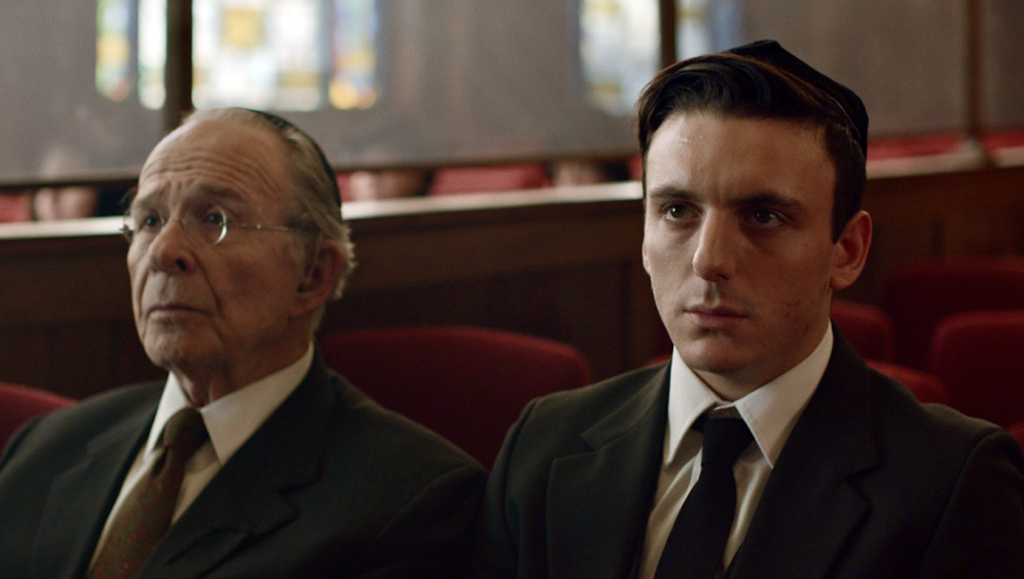Minyan is a delicate film of subtle power, smartly weaving several threads into a rich coming-of-age portrait.
Set in 1980s New York, Eric Steel’s Minyan is a tender, intimate coming-of-age film about a young man coming to terms with his identity as both a Jew and a gay man. David (Samuel H. Levine) struggles to reconcile his identities until meeting two closeted gay men in his grandfather’s apartment complex, and becoming more deeply involved with the gay community right at one of its most pivotal historical moments. As David navigates relationships, community, and even less abstract realities, like school and ensuring his widowed grandfather has a home, the three collide, reshaping his life.
Minyan is a film that is more than comfortable with its own dual-identity, accepting and artfully portraying all the many contradictions that David encounters. The score, from David Krakauer and Kathleen Tagg, is audacious, mirroring David’s attempts to find his place within wildly different subcultures. The duo utilize everything from the thumping bass of nightclubs to soft, twinkling jazz to Yiddish klezmer music. It’s not a subtle approach, but the score infuses the entire film with a sense of dynamism that could easily be missing from a work this introspective and quiet.
The score isn’t the only way the film draws from and articulates these different facets of David’s identity, with influences ranging from James Baldwin to the Torah, and from orthodox Jewish culture to the queer nightlife of 1980s New York. The result is poetic, neatly and effectively finding rhymes between Jewish and queer experience, and drawing a subtle link between a community emotionally recovering from a genocide and another who are unwittingly approaching theirs. Steel is never brazen about the comparison, leaving it as tasteful subtext, but David’s status as a member of both of these groups, his youth leaving him naive to the real suffering of both, is heartbreaking nevertheless, and makes his coming-of-age politically as well as emotionally meaningful. Steel departs these quiet, intricate comparisons on an optimistic note that neatly ties together the thread he has been twining, with a rabbi commenting that his minyan, a group of ten Jewish men that is considered the minimum for religious ceremonies, accepts any man of faith, regardless of their background or, pointedly, their sexuality. David is welcomed, not with a fake promise of unconditional love, but with the sentiment that this is how marginalized communities survive: by putting aside differences and focusing on similarities, and letting each other’s individuality thrive.
Published as part of Before We Vanish | October 2021.


Comments are closed.